FlashFocus: Mircea Lucescu returns to Romania in final chapter of stellar career
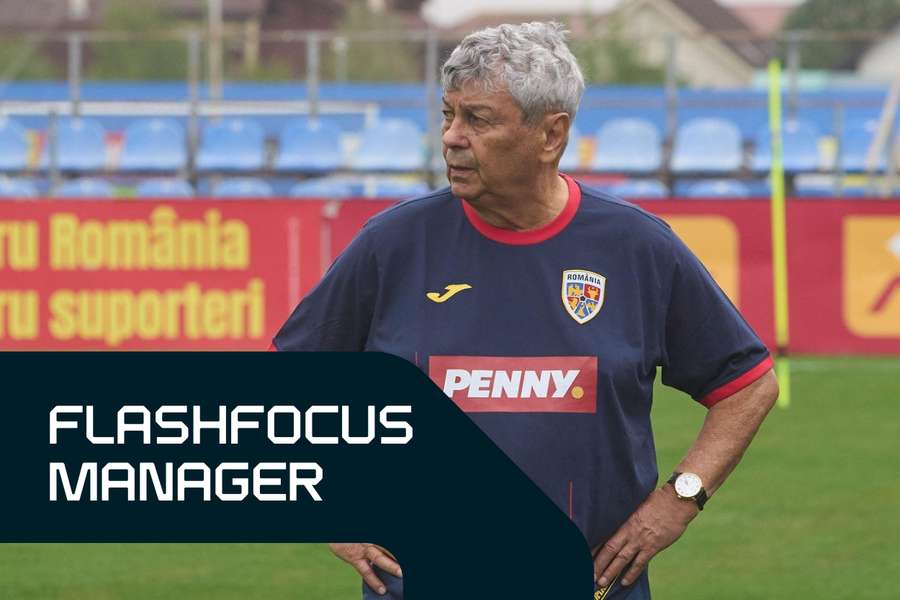
In a ranking of the most successful coaches of all time, Mircea Lucescu is in third place with 35 trophies won, behind only Sir Alex Ferguson and Pep Guardiola.
"Actually, it's 37," he is always pointing out, believing that the promotions won with Brescia and Corvinul Hunedoara should be taken into account because they came after winning their respective leagues. It is proof of the pride of a coach who has always lived for competition and for whom the legacy he leaves behind is not indifferent.
Mircea Lucescu's coaching career began in the 1980s when he took charge of Corvin Hunedoara, a team he had been playing for two years but which had been relegated to the second division in communist Romania.
A proponent of an attacking game, Lucescu was not afraid to bet on youngsters and in the space of just two years took Corvin from Liga 2 to the UEFA Cup, finishing third in the 1980/81 season ahead of the mighty Steaua Bucharest.
The performance did not go unnoticed and, in parallel with the club team, he was also given the role of Romania's national team coach.
In this position he promoted Gheorghe Hagi, now considered the best player in Romanian football history, to the first team.
"He has helped me in my career as a sportsman and footballer through that promotion at the age of 18, he took me from the juniors straight to the senior team without me having to spend a single minute in the youth team.
"I thank him for that, he accelerated my training, gave me courage and confidence in my football career. What he saw in me, I don't know, but that's what a great coach means," Hagi said about the man who not only gave him his debut for the national team but also put the captain's armband one point.
The talent finder
Gheorghe Hagi was one of the first in a long line of young players to be honed by the skilful hand of Mircea Lucescu. In the early 1990s, after the fall of the communist regime, the West opened its doors to a wave of talent that until then had only been able to perform behind the Iron Curtain.
Among those who left was Mircea Lucescu, and among the names he left his mark on, one in particular stands out: Andrea Pirlo. At just 15, he was promoted to Brescia's senior team and a year later was given his first Serie A minutes.
The midfielder was grateful to the man who had already earned the nickname "Il Luce" (The Light) in Italy.
"I was 15 years old, he took me from the youth team and made me train with the first team. The 30-year-old players were bothered that a boy was in their way and were often very nervous," Pirlo revealed in his book, "I Think, Therefore I Play".
"The first thing Lucescu whispered to me: 'Play as usual'. I did, and not everyone liked it. Once I dribbled one of the veterans three times in a row, but the fourth attempt was fatal. He knocked me down with a terrible ankle kick.
"Lucescu was pleased: "All right, great. Try to get past him again," Pirlo recalled some of the moments he spent with the Romanian coach.
"Besides being a creative player, he was a person who organised everything, which is another skill. He called me a master? It makes me proud. I have to thank him!" was Lucescu's response in an interview with UEFA.com.
The great transformation
In 2000, Mircea Lucescu signed for UEFA Cup winners Galatasaray, where he reunited with Gheorghe Hagi and together they won the European Super Cup against Real Madrid.
At the time, Galatasaray were a constant presence in the final stages of the Champions League, but after Lucescu won his first title with Galatasaray, he was sacked and committed an act of betrayal by immediately signing for rivals Besiktas, to whom he brought them the title in their centenary year with a record 85 points, only to be beaten in the 2022/23 season by Galatasaray.
But the biggest period of his career was spent, somewhat surprisingly, in Ukraine, signing in 2004 with Shakhtar Donetsk, whom he managed to transform over 12 years from a mining town team into a continental powerhouse.
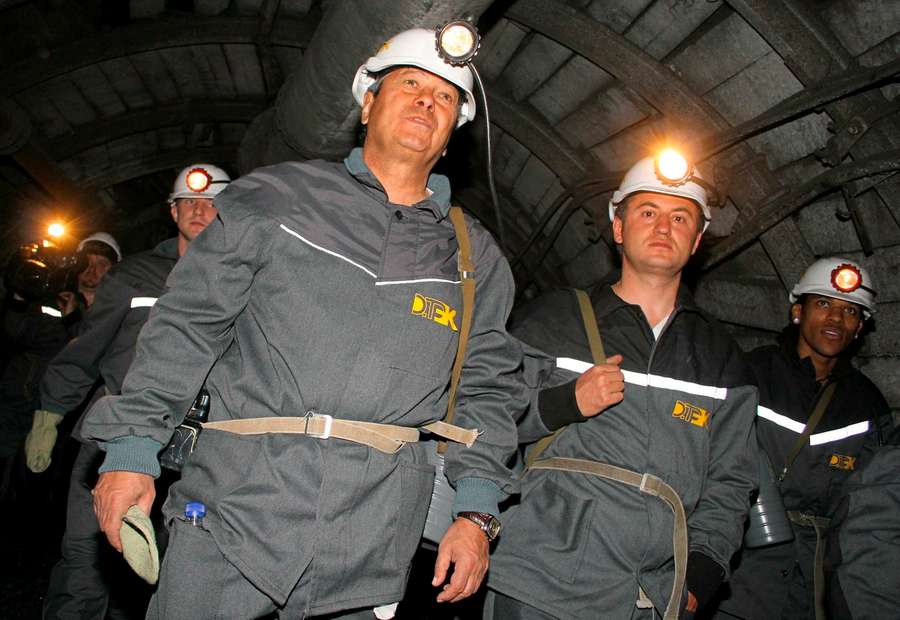
Backed by the money of billionaire Rinet Ahmetov, not many top players dared to relocate to eastern Ukraine, so Lucescu did what he did best: he promoted promising youngsters and turned his attention to Brazil.
Willian arrived in Ukraine thanks to Il Luce when he was 19 years old and after six years spent in Donețsk, he was sold for 35 million euros to Anzhi. Half a year later in 2013, he arrived at Chelsea, becoming one of the Premier League's stars.
The same happened with Fernandinho, another Brazilian taken by Lucescu at just 20 from his native country, who ended up costing almost €40m when he was sold in the Premier League to Manchester City.
Alex Teixeira, Douglas Costa and Luiz Adriano are other Brazilian players who, once in the Romanian's hands at Shakhtar, progressed enormously and went on to play for big European clubs.
The ultimate betrayal
After eight league titles, five Ukrainian Cups and a UEFA Cup with Shakhtar, Lucescu left Ukraine, but after two brief spells with Zenit St Petersburg and the Turkish national team he chose to return, but not to the place where he was a living legend at club level, but to arch-rivals Dynamo Kyiv.
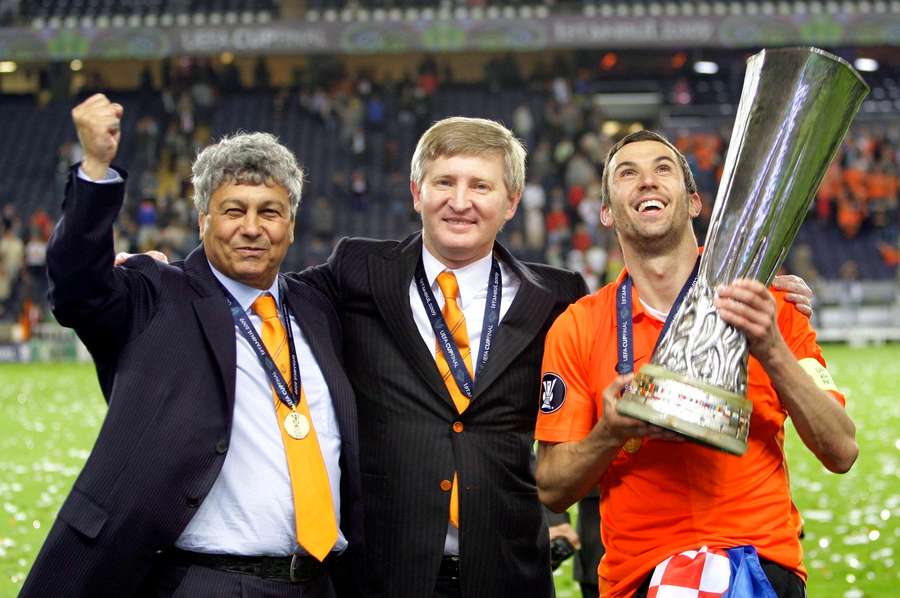
During his 12 years at Shakhtar, he launched scathing attacks on their great rivals, including on coach Valeri Lobanovski when he challenged his sixth-place ranking in France Football's list of the best coaches of all time. His tenure there could not be wiped clean.
"The choice of a 74-year-old coach who regularly spoke against Dynamo is unacceptable," Dynamo fans wrote in a statement. "We call on all club employees who have any respect left to resign."
The pressure had reached such tense levels that Lucescu wanted to quit just four days after his appointment, but owner Igor Surkis persuaded him to stay: "The feelings of some fans cannot be a determining factor in the future of this club," he told him in a letter.
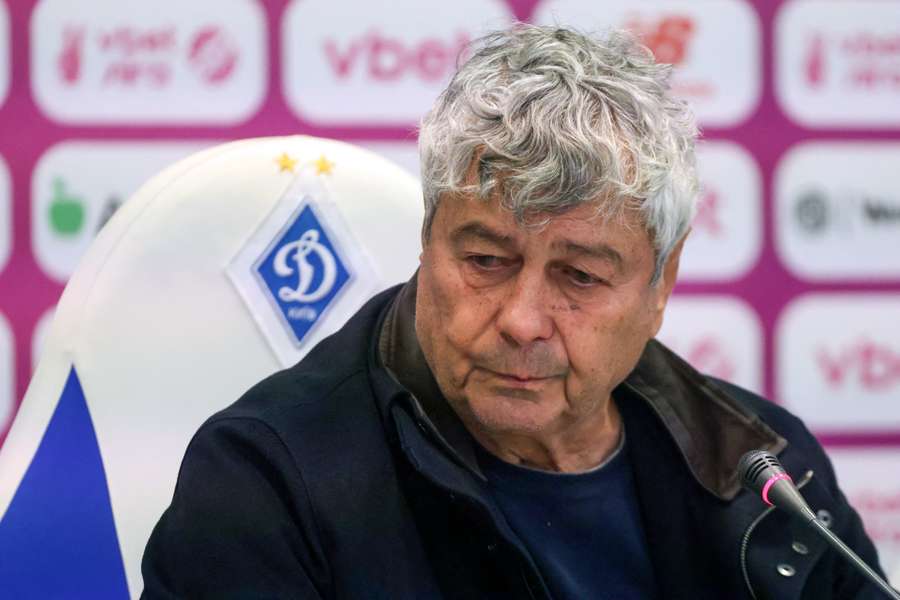
The first championship match was played behind closed doors, but the fans managed to break through the blockade and invade the pitch, demanding the departure of the Romanian coach, who decided to live in the club's training base to avoid unwanted encounters with supporters on the city streets.
"Football is my life and I stayed at home for a long year. I really missed football. I could not refuse such an offer," Lucescu said in an interview with Tuttosport in which he tried to justify his choice.
'I am not a coward'
When Russia invaded Ukraine, football inevitably took a back seat. The Romanian embassy kept urging the coach to leave the country, but he always refused.
"How can I leave? I am not a coward, I didn't leave even when the madness started in Donetsk in 2014. I can't do that. I would set a negative example for everyone, of fear, panic, of unreliability. How could I do that?" said Mircea Lucescu in those days.
He finally did so after a 1-0 derby loss to Shakhtar, when he also announced his retirement from football.
"I gave 15 years to football in Ukraine. This is how I decided to end my career.
"It was the last game. I said goodbye to my players, to the players of Shakhtar. Thank you all. I would have liked to end it differently, but everything comes to an end. Everything has a beginning and an end," Lucescu said at the end of that game.
"Don't bury me yet," were the words spoken a few days after that retirement announcement, a sign that the door to football was not closed forever.
Determined to perform as he has done throughout an impressive career, Lucescu could now write a new page in history if he succeeds in taking the Romanian national team to the World Cup in the USA, Mexico and Canada, finally accepting the offer made by the Romanian Football Federation.
If the mission is realised, Il Luce will be 81 years old and in 2026 could become the oldest-ever World Cup coach.
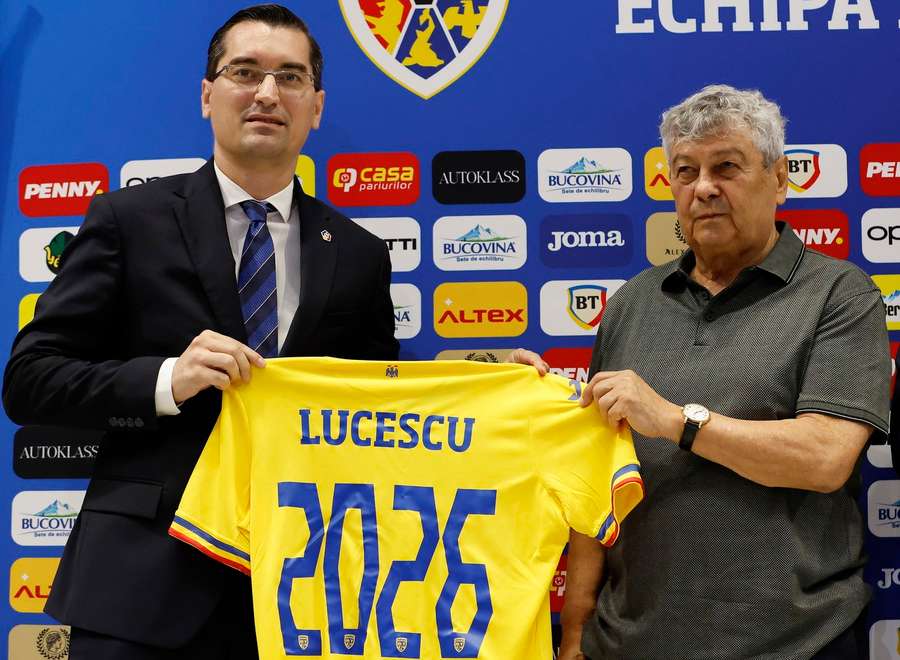
"To tell you the truth, I did my best not to come to the national team. It was normal to give young coaches the opportunity to move on.
"I don't need the risk either and I realise that I'm risking a lot, but I think Romanian football is worth the risk.
"Only one thing determined me. My love for football and my obligation to Romanian football, which perhaps needed the experience of one man.
"But in all this, you have to remember one thing, that I was not a coward."
